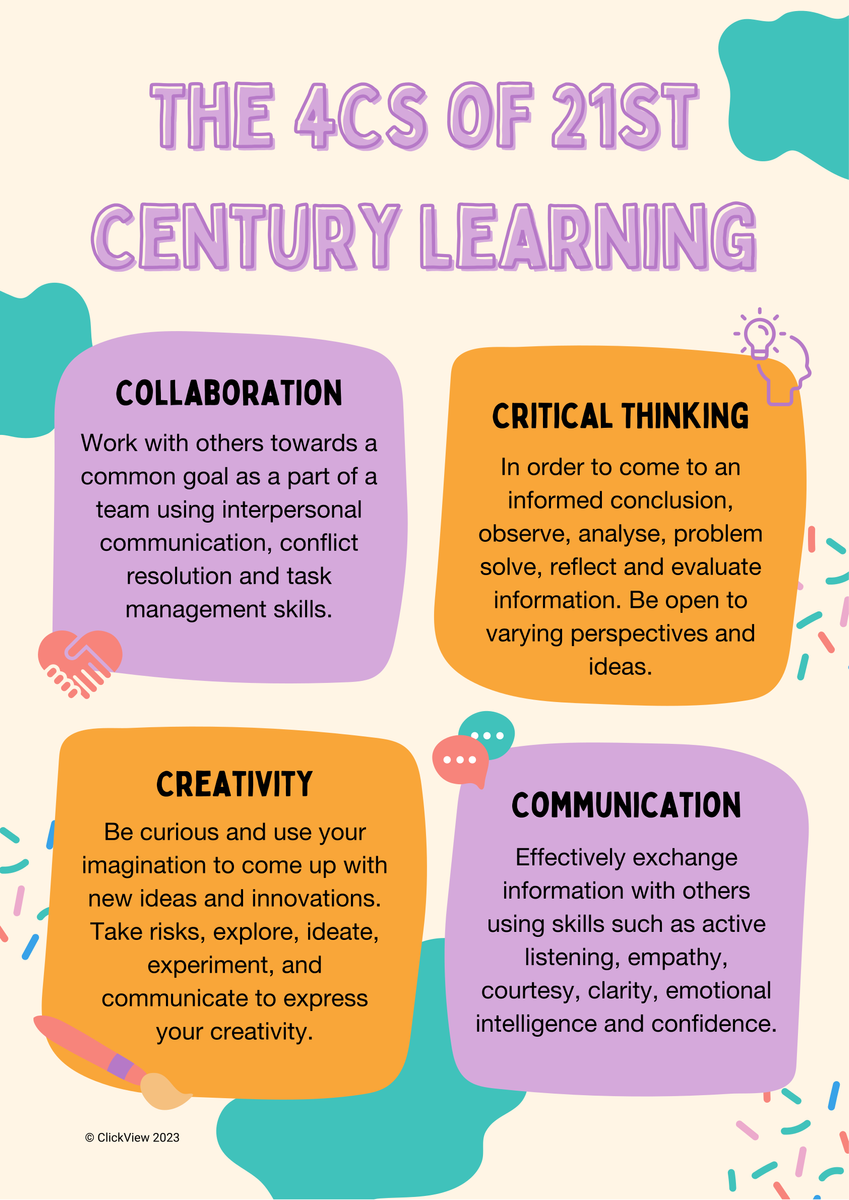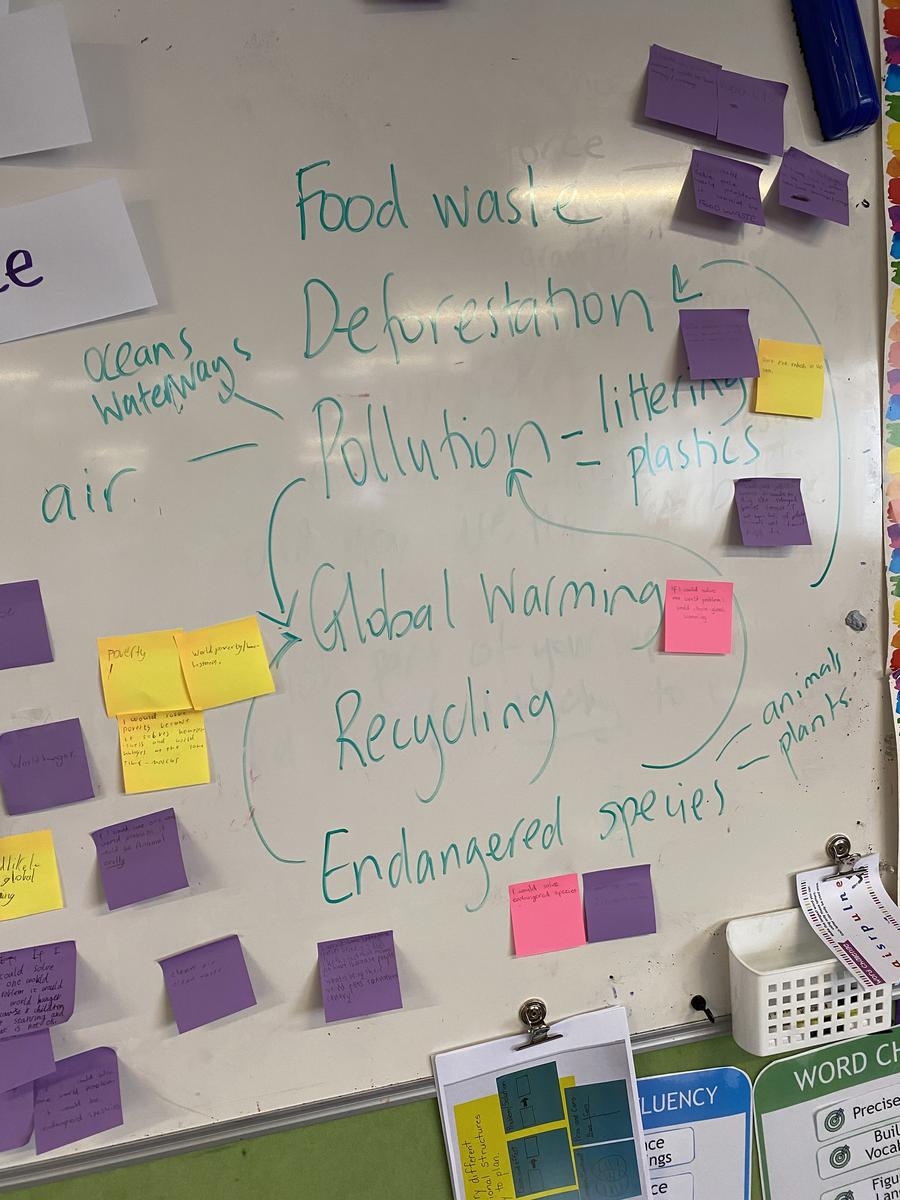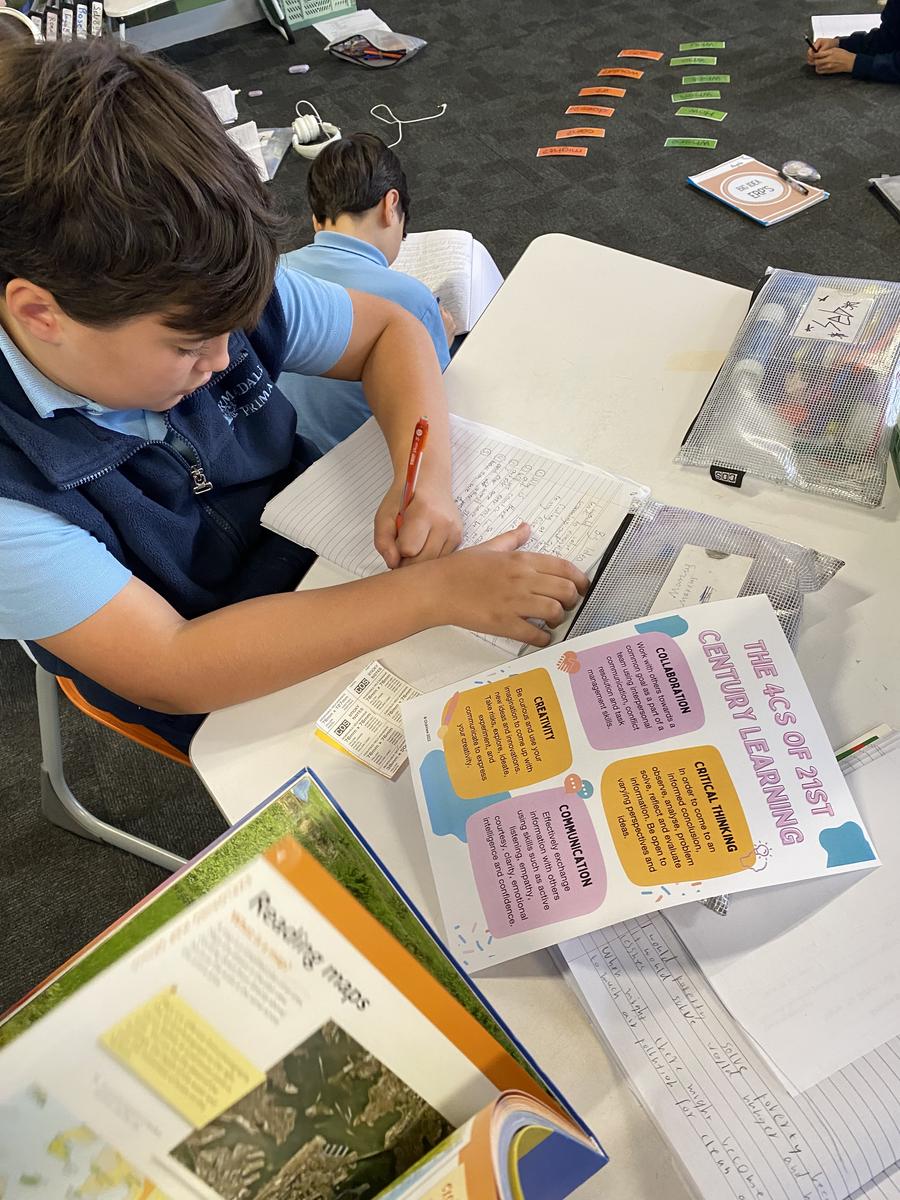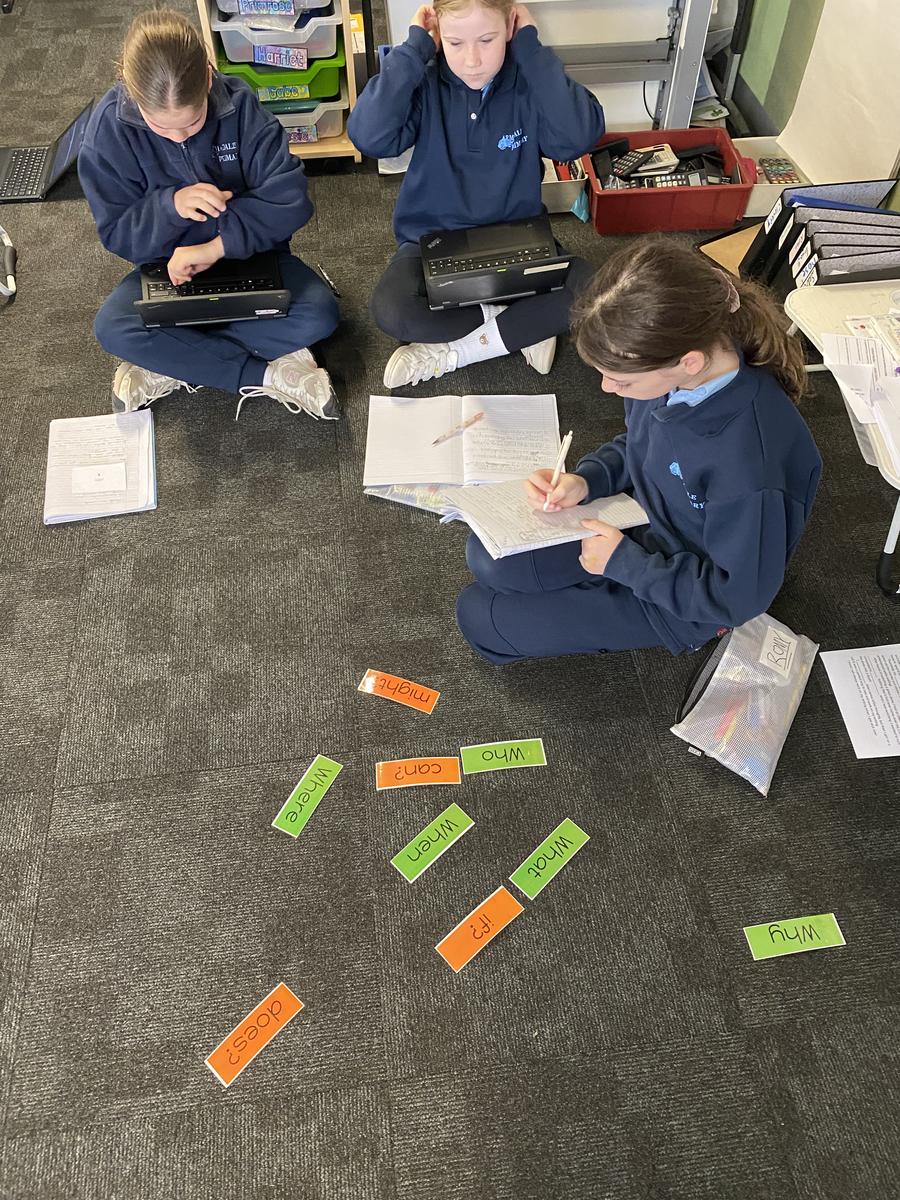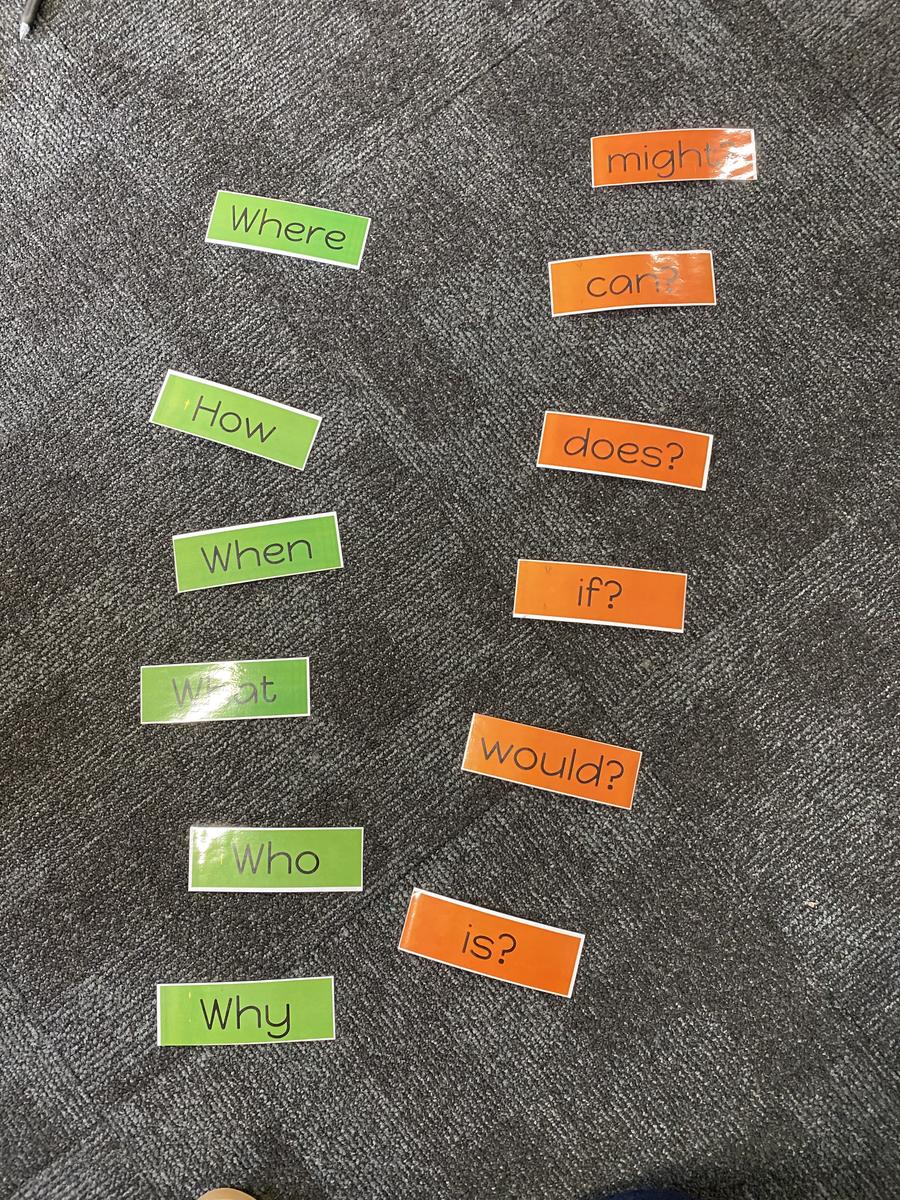Year 5/6 Bulletin
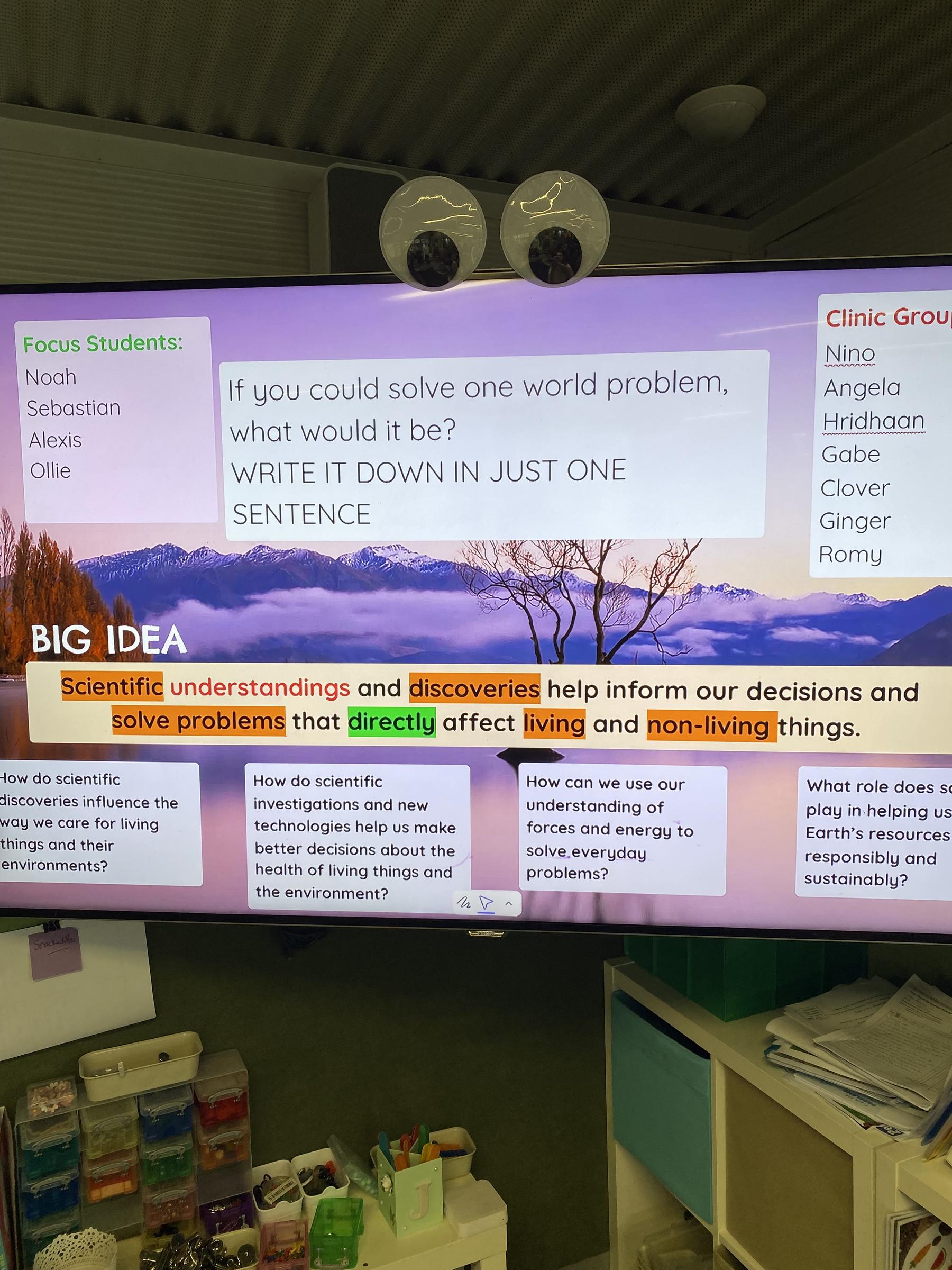
Investigating Real-World Problems Through Science
Learning Intention: To choose a world problem that matters to me and begin posing scientific questions about it.
Whole:
We began by watching a short ClickView clip [https://clickv.ie/w/dUY1] that explored the 4Cs of 21st Century Learning – Collaboration, Critical Thinking, Creativity and Communication. Students discussed how these four skills connect directly to solving big real-world problems, especially in science.
We paused to reflect:
- What does each of the 4Cs actually look like in action?
- How can these tools help us work more effectively as a team when solving complex problems, such as climate change or pollution?
Students then responded to the question:
“If you could solve one world problem, what would it be?”
They wrote their answers on sticky notes and placed them on the board, then shared a few aloud. This led to a discussion about how solving real-world issues takes more than just information; it requires teamwork, fresh thinking, clear questions, and strong communication.
We revisited the class brainstorm of global issues from earlier lessons and began to explore how the 4Cs could help us dig deeper into those problems.
Focus Students
Ivy, Lachie, Hugo, Ayham, Harriet T, Noah, Sebastian, Alexis, and Ollie were supported in setting a personal learning goal linked to the 4Cs. Examples included:
- “I want to be a better team member and not talk over people.”
- “I want to ask questions that go deeper, not just the obvious ones.”
- “I’m going to help our group stick to one good idea and not go off-topic.”
These students were encouraged to reflect midway through the session on how they were tracking against their goal and what they'd noticed about their own thinking.
Small: Choosing Issues & Generating Questions
Students revisited the world issues they had brainstormed earlier in the unit (e.g. air pollution, plastic waste, endangered species, food waste). In groups, they selected a focus issue and used question prompts and 4C reflection cards to start crafting scientific questions about their chosen problem.
The question stems included:
- What is causing this?
- How does it affect people, animals or the environment?
- What can be done to help or prevent it?
- Who is impacted most?
As students worked, they were encouraged to notice when they were using the 4Cs, whether by combining ideas (creativity), building on each other's thinking (communication), or respectfully disagreeing to improve a question (critical thinking).
Clinic Group – Strengthening Scientific Questions
The clinic group worked with teacher support to refine their scientific questions using ‘question cards’. Many of their initial questions were too broad, or not yet “science-ready.” We practised:
- Turning “blurry” questions into sharper ones
- Using sentence stems (e.g. “What impact does…?”, “How might…?”, “What causes…?”)
- Talking through ideas aloud before writing them down
Students were also given a mini-challenge to link at least one 4C to the way they improved their questioning. For example:
“I used critical thinking when I realised my question didn’t have a clear cause and effect.” “We had to communicate clearly to agree on one good question.”
By the end of the session, each clinic group member had developed one or more focused, investigable science questions and could explain how they’d used at least one of the 4Cs to get there.
Whole:
At the end of the lesson, the Focus Children shared their updated goals, including the following examples:
- "I want to learn about how pollution in our ocean impacts animals, specifically where the most affected areas are."
- "I want to learn what the impacts of eating too much sugar are and how I can help others fix this problem."
- "I want to learn how we can reduce and reverse our carbon footprint."
What you can do to support your child at home to help them develop their questioning skills:
When chatting at home, model and encourage thoughtful questions like:
- “Why do you think that happens?”
- “What could people do differently?”
- “What else would you like to find out?”
Even small conversations and activities at home can help deepen your child’s curiosity and build their sense of agency as a young problem-solver.
Thank you for your ongoing support!
Jenny and Luca
Year 5/6 Team

